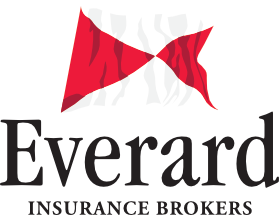Working as a personal trainer or a fitness instructor can be risky, for both you and your clients.
In this post we will outline all of the insurance you should consider getting as a personal trainer or a fitness instructor.
Do I Need Insurance If I Work For a Gym?
If you work for a gym, they may provide some form of cover to you as an employee. Yet you may not the full cover you need for all risks.
If you are an independent personal trainer or fitness instructor, or if you run online classes, then you will certainly have to arrange for all of your insurance cover.
What Insurance Do Personal Trainers Need?
There are different types of insurance that personal trainers could benefit from to protect them and their clients should the worst happen. This includes:
- Personal injury insurance
- Professional liability insurance
- Public liability insurance
- Equipment insurance
- Employer’s liability insurance
- Cyber insurance
We’ll explore each of these individually, what they cover and how they can help.
Personal Injury Insurance
Working as a personal trainer or fitness instructor can be a lot more physically demanding than other roles.
What this covers: If you ever injure yourself while exercising, or even while performing other daily tasks, and you will not be able to work.
Personal injury insurance can give you a cash injection that will help you make ends meet while you recover from your injury.
You could also get dedicated loss of earnings insurance, which could provide additional cover should a serious injury put you out of action for an extended period.
Professional Liability Insurance
Your clients work with you because they want to see results. If a client does not see the results that they expect to see, then they may make a claim against you. They may allege that you made unrealistic promises, or that you misrepresented your abilities. And they may demand compensation as a result.
This may seem unrealistic, but it happens.
What this covers: Professional liability insurance can cover you for claims of negligence, dishonesty, and other allegations from dissatisfied customers. The insurance can cover your legal fees, should you need to defend yourself in court, along with any compensation that may be due if the court rules in your client’s favour.
Public Liability Insurance
You can do all you can to keep your clients safe during sessions. But accidents happen. And if a client injures themselves during a workout or a class, they may make a claim against you.
What this covers: Public liability insurance can cover any compensation payments that may arise.
Public liability insurance can also cover damage to property. This can include instances where clients damage your property during a session, or the equipment at a gym you work at. If you offer home visits, public liability insurance can also cover any accidental damage to your client’s property.
Some personal trainers run online sessions. Public liability insurance can also cover you should a client injure themselves while taking a digital class in their own home, while you are located elsewhere.
Equipment Insurance
What this covers: Specialist sport equipment insurance can cover your valuable equipment for loss, damage, or theft. You can get cover for when you are storing and transporting your equipment, and for when you are using it, either on your own premises, in a gym, or in a client’s home.
Equipment insurance can also cover the technology you use to run your personal trainer or fitness instructor insurance, including smartphones, tablets, laptops, and stereo systems.
Employer’s Liability Insurance
Many personal trainers work alone. But if you hire any staff as part of your work, then you have a legal requirement to get employer’s liability insurance.
What this covers: This will cover your employees for any accidents, injuries, or illnesses they may sustain while working for you.
There are no ifs and buts with employer’s liability insurance. If you employ staff, then you need this cover in place. This is true even if you only employ someone part time to manage your schedule and carry your equipment, and even if you hire a friend or a family member to do so.
Cyber Insurance
Finally, anyone who runs any kind of business should take the risks of cybercrime seriously. Personal trainers and fitness instructors are no exception. If you use a computer to manage your schedule and your clients list, then you are vulnerable to a cyberattack.
Cybercriminals may target you in order to steal your valuable client data. Or they may forcibly encrypt your data as part of a ransomware attack. Cybercriminals will not care if you are “only” a personal trainer with a small handful of clients. Anyone is fair game to them.
What this covers: Cyber insurance can cover you for many of the risks associated with cybercrime, as well as for the costs of responding and recovering to the attack. As such, it is one form of cover that no business owner should do without, and this extends to personal trainers and fitness instructors.
Specialist Personal Trainer and Fitness Instructor Insurance From James Hallam
James Hallam is an independent Lloyd’s broker with access to a hand-picked selection of A-rated insurance providers.
If you are a personal trainer or a fitness instructor, we can help you get the specialist cover you need at a competitive price. We can help you whether you work for a gym, or you offer your own independent services, or even if you run online fitness classes.












